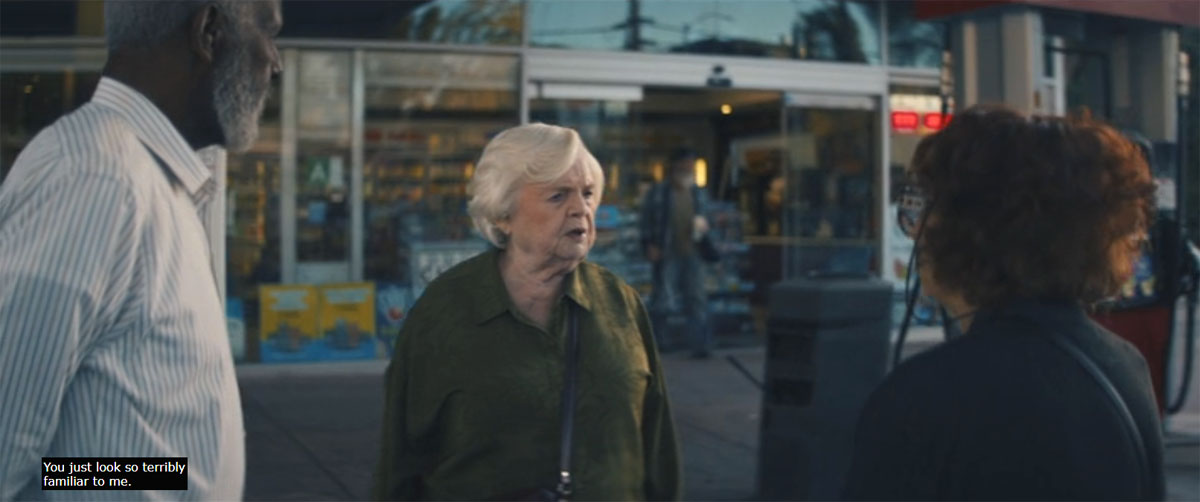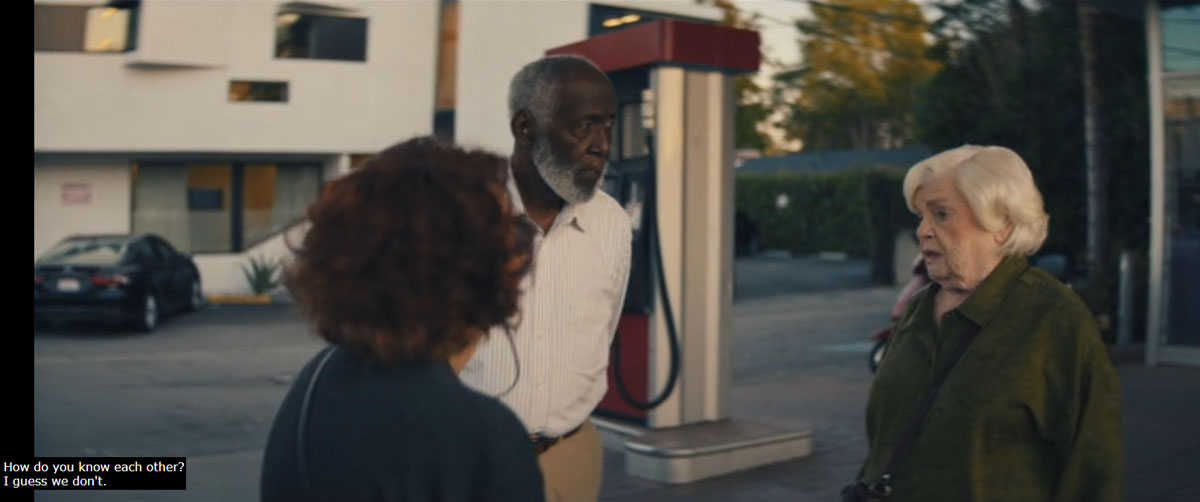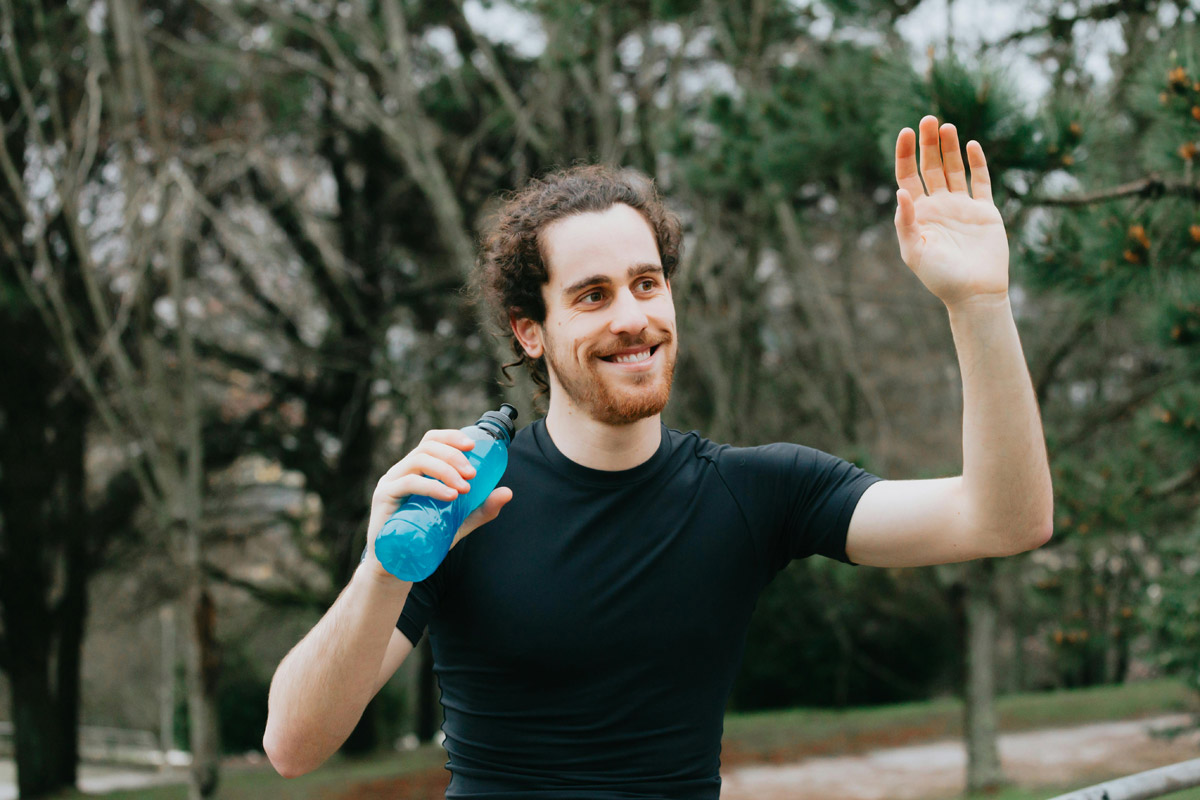
I worked on a show once where when we all got in the rehearsal room for the first time, there was someone who was adamant that we’d worked together before (we hadn’t). “No no, I KNOW you from somewhere,” he insisted. Aside from the fact that I’m blessed/cursed with the memory of an elephant, so knew for a fact that we’d never met, I kept trying to convey to him the rarity with which I emerge from my cave, thus rendering it near impossible that we’d crossed paths before. Now thanks to TikTok, I know that what transpired was the “cousin face” phenomenon. Occurring rampantly in Homo sapiens, “cousin face” comes from the human brain trying to categorize and recognize new input — facial features — with previously stored data. We’re hardwired to make sense of the unknown, and that includes looking for something familiar in the face of a stranger. Yahoo spoke to a few experts to explain the science behind the brainwork:
Unsurprisingly, “cousin face” isn’t a formally recognized scientific term, and there aren’t any peer-reviewed, scientifically driven articles using it. That said, the concept behind it does have proven roots in facial recognition research.
A 2022 study out of Cedars-Sinai in Los Angeles found that when the eyes scan the face, certain cells in the amygdala, a part of the brain that processes social and emotional information, reach and trigger memory-making activity. “These cells, appropriately known as ‘face cells,’ appeared to activate only when people were looking at faces,” clinical neuropsychologist Jessica McCarthy tells Yahoo Life. In turn, these cells activate brain waves in the hippocampus, “which is a key part of the brain responsible for information processing and memory formation,” McCarthy says.
Essentially, our brains are just plain wired to detect and remember faces — and in turn, perhaps, to seek memory connections in those faces even when they may be false ones. “Sometimes we find people familiar because they share common features with many others we’ve seen before,” licensed therapist and psychologist Cheryl Groskopf tells Yahoo Life. “Our brains are tuned to pick up on familiar patterns, which helps us navigate social interactions more smoothly.”
While the “cousin face” phenomenon is mostly a fun, relatable way to describe those silly “déjà vu” moments with new acquaintances, “it also underscores the complexity of facial recognition processes in our brains,” Groskopf says.
So why do we do it? Because it’s easy. Our brains’ amazing ability to recognize and categorize faces, even when we can’t quite place whether or not we’ve seen them before, “likely evolved as a crucial social skill, helping us navigate complex tribal and familial relationships,” clinician and sociologist Natalie Rosado tells Yahoo Life. “It’s a great example of how our brains use shortcuts and patterns to make sense of the world. Our brains are constantly trying to match new information with existing patterns.”
According to Rosado, “cousin face” is about feeling a sense of familiarity with unfamiliar faces. “It’s like our brain’s facial recognition system working overtime!”
So do some people really have a generic-looking “cousin face”? Pretty much. As much as our brains are indeed striving to find familiarity in faces all over the place, there is also a concept of the “average face” in psychology. “Studies have shown that we tend to find faces more attractive when they’re closer to the average of all the faces we’ve seen,” Rosado says. “So a ‘cousin face’ might be tapping into that same idea: a face that’s familiar because it’s somewhat ‘average’ in a comforting way.”
“So do some people really have a generic-looking ‘cousin face’? Pretty much.” Well now I’m just insulted! I thought I had a distinctive face, but instead you’re telling me that attractiveness is merely bred from having an abundance of average features?! I don’t like this! I want to go back to the world where I’m pretty, and unique, and where if you think I look familiar, it’s because I know you, I walked with you once upon a dream. Thanks a lot, TikTok…
Moving past the complete and utter shattering of my notions of beauty and individuality, the anthropological aspects of “cousin face” check out. It’s an evolutionary holdover of our primitive brains seeking to make sense of a cruel, bleak world; the eternal, desperate plight to locate a scrap of recognition, of familiarity, the tiniest shred of commonality with which to make a connection and feel just a little less alone in life. Unless you’re from Iceland, in which case you almost assuredly are in fact cousins.
Photo note by CB: These are screenshots from the movie Thelma, out now on demand and well worth the price. It’s a gem of a film and I highly recommend it. Other photos credit: Tim Samuel and Shot by Rain on Pexels














Hah! I am constantly being told “oh you look like my cousin, you sound like my cousin, you remind me of my aunt” so this is nothing new to me. I’ve just always told people it’s my generic middle aged white midwestern lady genes
And I guess I was right all along!
That’s so funny because in my 20s and early 30s I got this all the time. People constantly telling me I remind them of a friend or family member or they swear they met me before. Like my husband would even joke about it. Even then though I would say, oh I guess I just have the most average face then. I don’t get it anymore in my middle age but I am also not out amongst strangers all the time like I used to be by going to bars, restaurants, concerts, things I did a lot of before I had kids.
This is so much a thing. I am Black and I have a lot of family members who have fair skin, red hair, green eyes, and freckles. Any time I see someone with that coloring who is black, I straight up ask them where are their people from. If they are remotely close to Tennessee or St. Louis, I have more questions. Hooray?
Deja vu and this are also a symptoms of long covid.
My partner is always confused by how my Chicago peeps have convos all the time about who is related to who and how. “Look,” I tell him. “For 100 years the Catholics could only marry each other, so you have to know who is who — otherwise you wind up dating your cousin, like Denise and Charlie did in 8th grade.”
Having distinct features is a nightmare, especially if you are an introvert.
When I was much younger, this happened quite often. “I met you in Vegas, right? You look just like her”or “aren’t you Jack’s sister? You’re Carol, right?” Never been in Vegas as I’m not Carol.